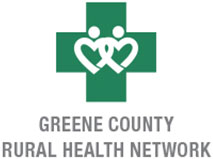Important Reasons Why You Should Get The Flu Vaccine

AVOID THOSE NASTY SYMPTOMS – The vaccine will help you avoid the unpleasant experience of flu symptoms such as high fever, headache, sore throat, cough, aches everywhere and more. The flu means not only physical suffering, but missed work and school.
COVID-19 & THE FLU COULD OVERWHELM OUR HEALTH CARE SYSTEM – According the Federal Centers for Disease Control, getting a flu vaccine is more important than ever during 2020-2021 to protect yourself, your family and your community from the flu. With coronavirus still a risk, a major flu outbreak this season may overwhelm hospitals. “People who can avoid the flu will help reduce the burden on a U.S. heath care system already overwhelmed by COVID -19,” said Mark Thompson, an epidemiologist in the Influenza Division at the Centers for Disease Control and Prevention. DO YOUR PART AND GET THE VACCINE.
DUEL ILLNESSES – It is possible to have the flu and COVID-19 at the same time, which anyone would want to avoid. Health experts are still studying how common this occurrence can be.
FLU VACCINE IS SAFE – Flu vaccines have a good safety record. Hundreds of millions of Americans have safely received flu vaccines over the past 50 years, according to the Federal CDC.
FLU VACCINE WON’T GIVE YOU THE FLU – The flu vaccine does not cause someone to get the flu, but some people may experience side effects such as soreness, redness, and/or swelling from the shot, headache, fever, muscle aches, and nausea. These side effects are not the flu. They are usually mild and last only a day or two. Some side effects are even more rare such as breathing problems, wheezing, hives, and dizziness. They often occur within a few minutes to a few hours after getting the shot. Some people make get sick even after getting the vaccine, but if they do get sick, the vaccine may make their bout with flu less serious. Some people may get sick and, someone could get another type of flu that the vaccine does not cover. But even with these limitations, getting the vaccine is the best way to prevent millions of Americans from getting sick with the flu.
FLU VACCINE WILL NOT INCREASE YOUR CHANCE OF GETTING COVID-19 – No evidence exists showing that getting the flu vaccine will make you more susceptible for getting COVID-19, according to CDC.
WHEN TO GET THE VACCINE – Ideally people should get a flu shot in September or October. But, even in January a shot is still useful so why wait and put yourself needlessly at risk?
GET A VACCINE EVERY YEAR – Even if you obtained vaccines in the past, you should still get one every year. Flu viruses are constantly changing so flu vaccines may be updated from one season to the next, which means you need the current season’s vaccine for the best protection. Also, a person’s immune protection from the vaccine declines over time.
GET YOUR VACCINE – Make sure you and your loved ones get the vaccine during September or October. You will be protecting you, your family, your community, and your health care system.
WHERE TO GET THE FLU VACCINE – Your doctor is always a good resource or below is a list of Greene County Pharmacies where walk-ins are welcome.
Where can I get my Flu Shot? |
|---|
| Several locations throughout Greene County will be administering the Flu Shot.
Please visit the location's website for any additional information. |
Greene County Pharmacies |
|---|
|
What Is The Flu?

Influenza (flu) is a viral infection that can infect the nose, throat, and sometimes the lungs. The flu can cause mild to severe illness and for most people will resolve on its own. But sometimes, influenza and its complications can be deadly. Though the annual influenza vaccine isn’t 100 percent effective, it’s still your best defense against the flu.
People at higher risk of developing flu complications include:
- Young children under age 5, and especially those under 12 months
- Adults older than age 65
- Residents of nursing homes and other long-term care facilities
- Pregnant women and women up to two weeks postpartum
- People with weakened immune systems
- People who have chronic illnesses, such as asthma, heart disease, kidney disease, liver disease and diabetes
- People who are very obese, with a body mass index (BMI) of 40 or higher
Symptoms
Influenza (flu) can cause mild to severe illness, and at times can lead to death. Flu is different from a cold. Common signs and symptoms of the flu include:
- Fever over 100.4 F (38 C) or feeling feverish/chills
- Aching muscles
- Chills and sweats
- Headache
- Dry, persistent cough
- Fatigue and weakness
- Nasal congestion
- Some people may have vomiting and diarrhea, though this is more common in children than adults.
How does the flu spread?
Flu viruses travel through the air in droplets when someone with the infection coughs, sneezes or talks. You can inhale the droplets directly, or you can pick up the germs from an object — such as a telephone or computer keyboard — and then transfer them to your eyes, nose or mouth.
People with the virus are likely contagious from the day or so before symptoms first appear until about five days after symptoms begin. Children and people with weakened immune systems may be contagious for a slightly longer time.
Controlling the spread of infection
The first and most important step in preventing flu is to get a flu vaccine each year. Flu vaccine has been shown to reduce flu related illnesses and the risk of serious flu complications that can result in hospitalization or even death. The influenza vaccine isn’t 100 percent effective, so it’s also important to take measures such as these to reduce the spread of infection:
- Wash your hands.Thorough and frequent hand washing is an effective way to prevent many common infections. Or use alcohol-based hand sanitizers if soap and water aren’t readily available.
- Contain your coughs and sneezes.Cover your mouth and nose when you sneeze or cough. To avoid contaminating your hands, cough or sneeze into a tissue or into the inner crook of your elbow.
- Avoid crowds.The flu spreads easily wherever people congregate — in childcare centers, schools, office buildings, auditoriums and public transportation. By avoiding crowds during peak flu season, you reduce your chances of infection. And if you’re sick, stay home for at least 24 hours after your fever subsides so that you lessen your chance of infecting others.
References:
Mayo Clinic, (2019 October 4). Influenza (Flu). Retrieved from https://www.mayoclinic.org/diseases-conditions/flu/symptoms-causes/syc-20351719, Centers for Disease Control and Prevention, National Center for Immunization and Respiratory Diseases (NCIRD), (2019, Sept 13). (Key Facts about the Flu) Retrieved from https://www.cdc.gov/flu/about/keyfacts.htm





